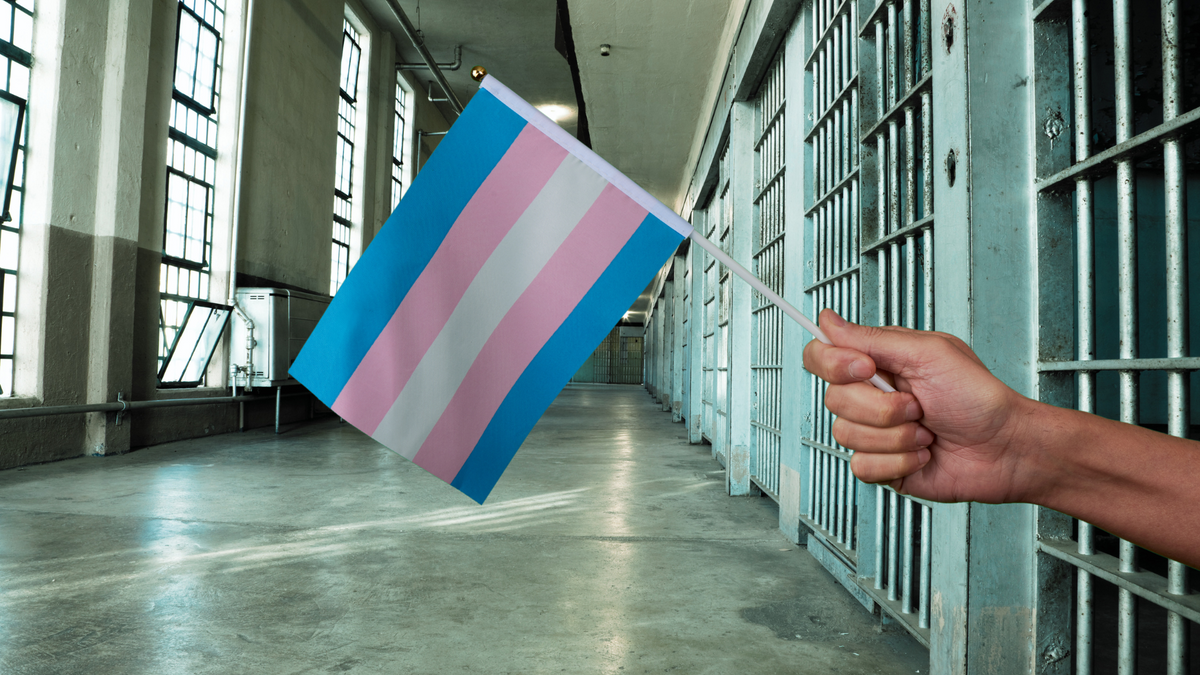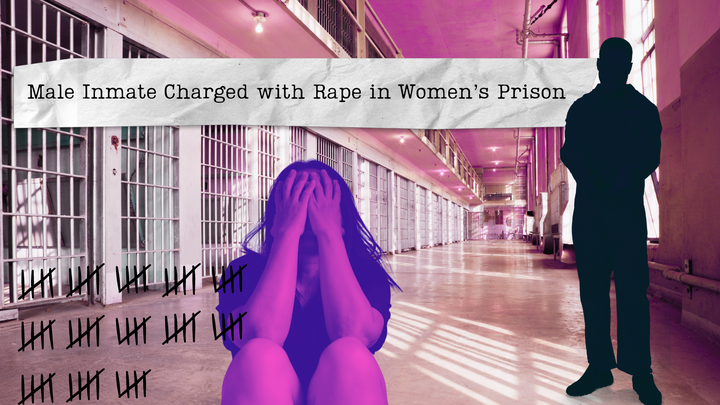Belgian Prison Transition Project Puts Female Inmates at Serious Risk
Soon, the country will stop segregating prisoners by sex, and a new project will make it easier to transition behind bars.

In September 2022, a Belgian organisation called the Transgender Infopunt (TIP) will launch a project called “Beyond Binary Bars” that will provide access to information and psychosocial support to detainees in Belgian prisons who are undergoing, or who wish to undergo, gender transition while in detention.
Belgium is one of seven EU countries that allows self-ID. The procedure to change your gender on official documents requires little more than a visit to the maison communale/gemeenthuis (city hall) and a waiting period of three months.
Beyond Binary Bars will provide information to detainees on the necessary administrative procedures as well as information on medical care related to gender reassignment, such as hormone treatment and surgery. It will also tailor its advice and materials to prison staff.
“Lack of affirmation and acceptance”
Little information is available online about the project apart from an article on the website of the TIP, and multiple requests for verification went unanswered. However, the information that is available strongly suggests that the project is intended to aid those who decide to change their name and official gender registration from behind bars.
Transgender Infopunt designates itself as a “neutral” resource for questions about gender diversity and transgenderism in general. It is operated out of Ghent University Hospital (UZ Gent), one of two hospitals in the country to offer gender reassignment services.
The coordinator of TIP, Dr Joz Motmans (who did not respond to a request for comment) is a gender studies professor and high-profile advocate for transgender affirming care in Belgium. Dr Motmans is also the founder and current president of EPATH, the European branch of WPATH, the World Professional Association of Transgender Health, according to the UZ Gent website. The project will be run by a researcher called Davo Maras who works with the TIP and who won the Inclu thesis prize in May 2022 for his research into the experiences of transgender people in Flemish prisons.
According to the website article, Maras’ research shows that transgender detainees suffer “daily confrontations with micro-aggressions such as transphobia and a lack of social recognition, affirmation and acceptance of their gender identity and expression, both in interaction with staff and other inmates.”
“The inaccessibility of (information about) administrative procedures for a change of first name and/or gender registration, gender discrimination and transgender care … has a negative influence on (transgender people’s) mental and physical well-being,” says the article.
A state secret: men in Belgian women’s prisons
Information on the number of transgender-identifying men currently being held in women’s prisons in Belgium is hard to obtain. A freedom of information (FOI) request launched by gender critical feminists in Belgium in 2021 revealed that the federal government does not keep track of the number of detainees who are transgender, or how many have requested a legal change of gender marker on official documents change since self-ID was introduced in 2018.
“Transgender people are not registered in our detention management database,” a justice department spokesperson revealed in May 2021 to Vanessa McCulloch, an Antwerp-based gender-critical feminist and researcher. A later response from the same department said that the decision on the placement of individual transgender inmates is made by local authorities, taking into account the situation of the detainee.
However, another FOI request revealed in June 2021 that the authorities are planning an overhaul of the rules. According to spokeswoman Annemie Vanhove, “What we can tell you is that the starting point for determining the place of confinement and the regime applied to someone is no longer (only) the gender on the birth certificate or identity card.”
As of July 2022, the new guidelines are still not public.
“A broad panoply of manifestations and forms of expression”
The spokesperson’s written response also suggests that the new rules will take into account other genders: “The renewed guidelines also focus on how to deal with this broad and fluid target group (after all, there is no longer a binary division, but a broad panoply of manifestations and forms of expression).”
The Beyond Binary Bars project is part of “Tant qu'il faudra”, a funding program centered on gender equality launched by the federal government and secretary of state for gender equality, equal opportunities and diversity, Sarah Schlitz.
Men make up more than 95% of Belgium’s 10.5k prisoners. Homosexual transsexuals have been sent to women’s prisons for decades, a Belgian doctor who has treated one such inmate and who wishes to remain anonymous, told 4W.pub.
By funding such a project, and with the upcoming legal changes and the ease with which anyone over 18 can legally change their gender marker in Belgium, the country’s government is about to put female inmates at serious risk. It will soon be much easier for bad-faith male inmates to take advantage of the opportunity to transfer to better conditions, where they will have access to vulnerable women.
Do you want to bring the "gender madness" to an end? Help us write about it! 4W is able to pay our all-female staff and writers thanks to the generous support of our paid monthly subscribers.
Enter your email below to sign in or become a 4W member and join the conversation.
(Already did this? Try refreshing the page!)





Comments